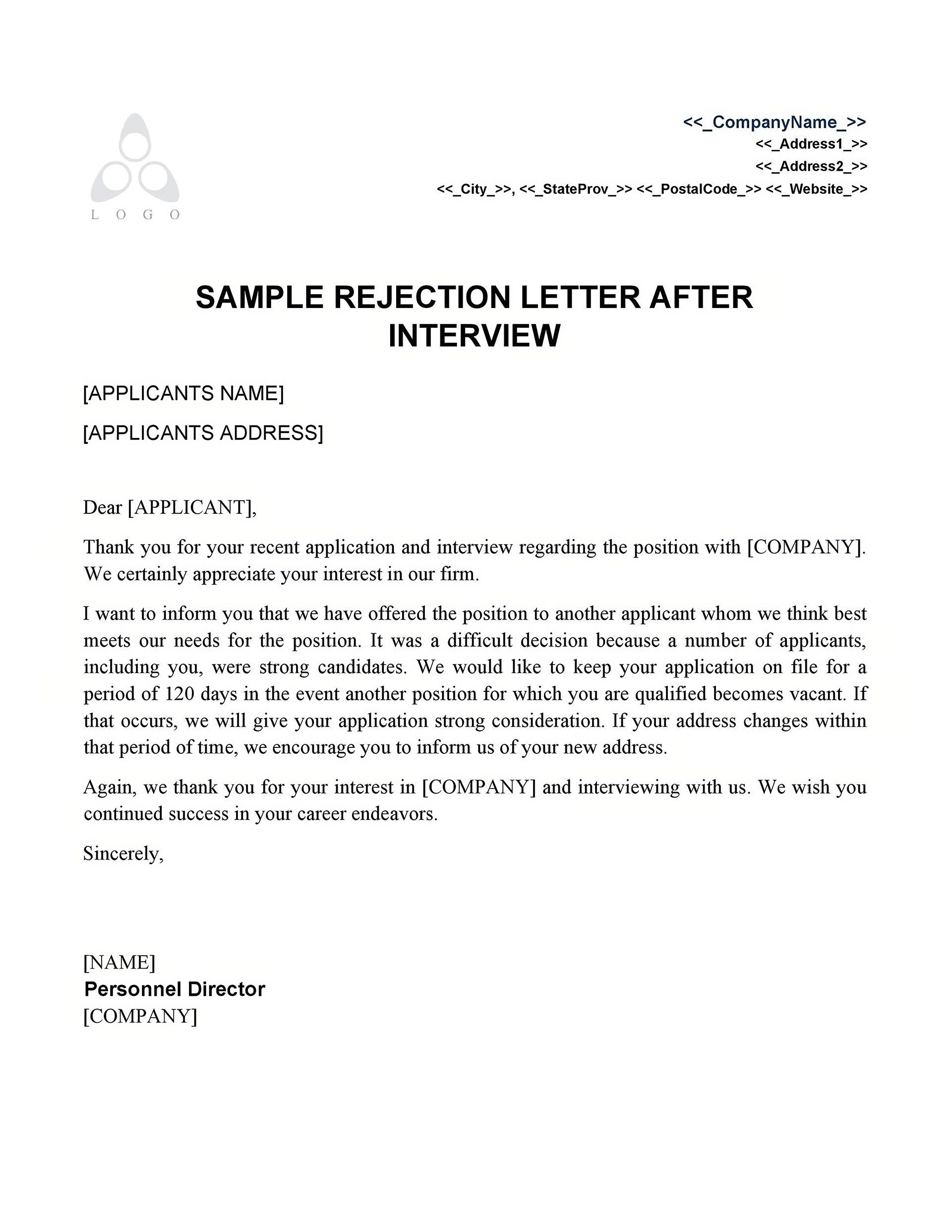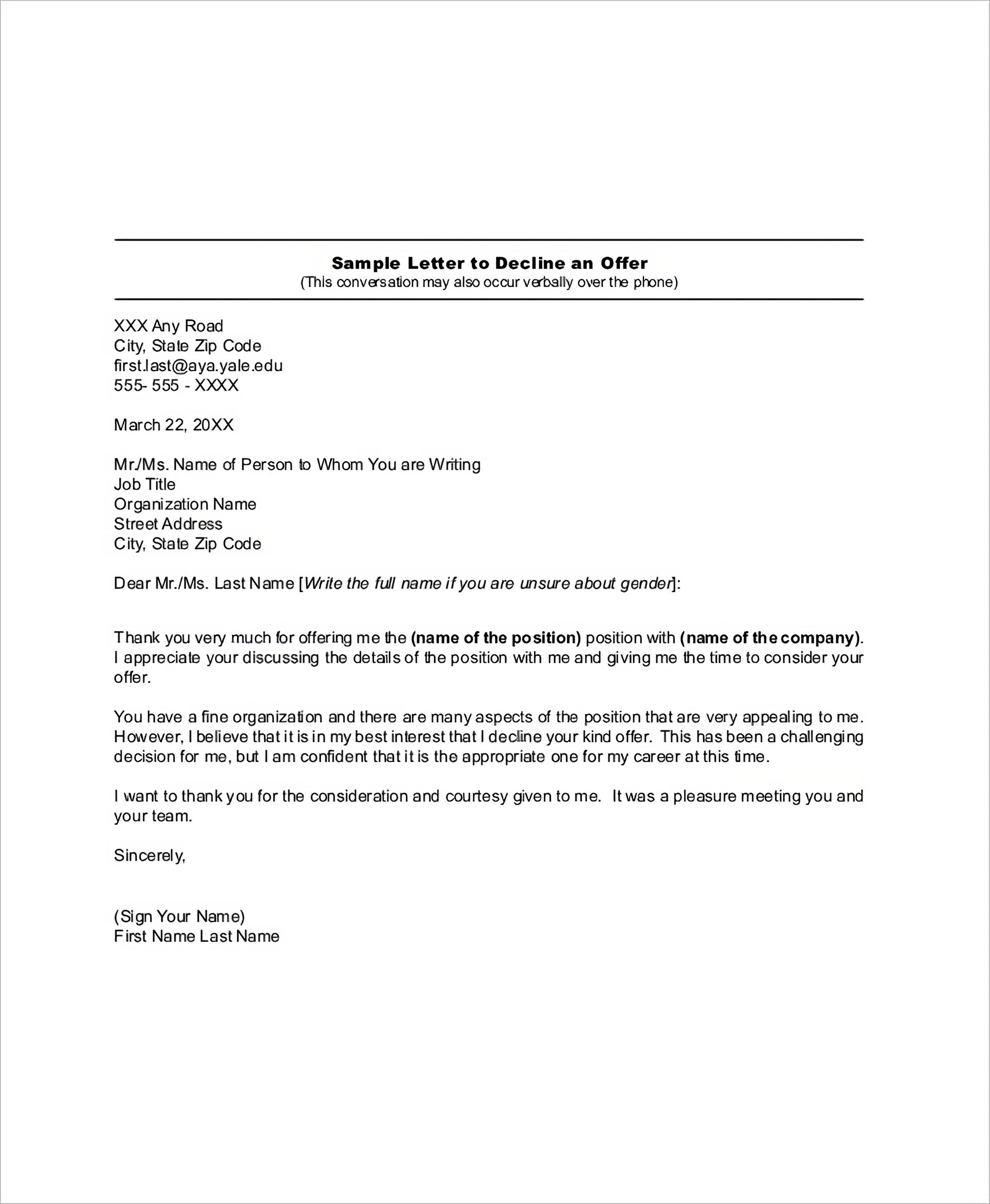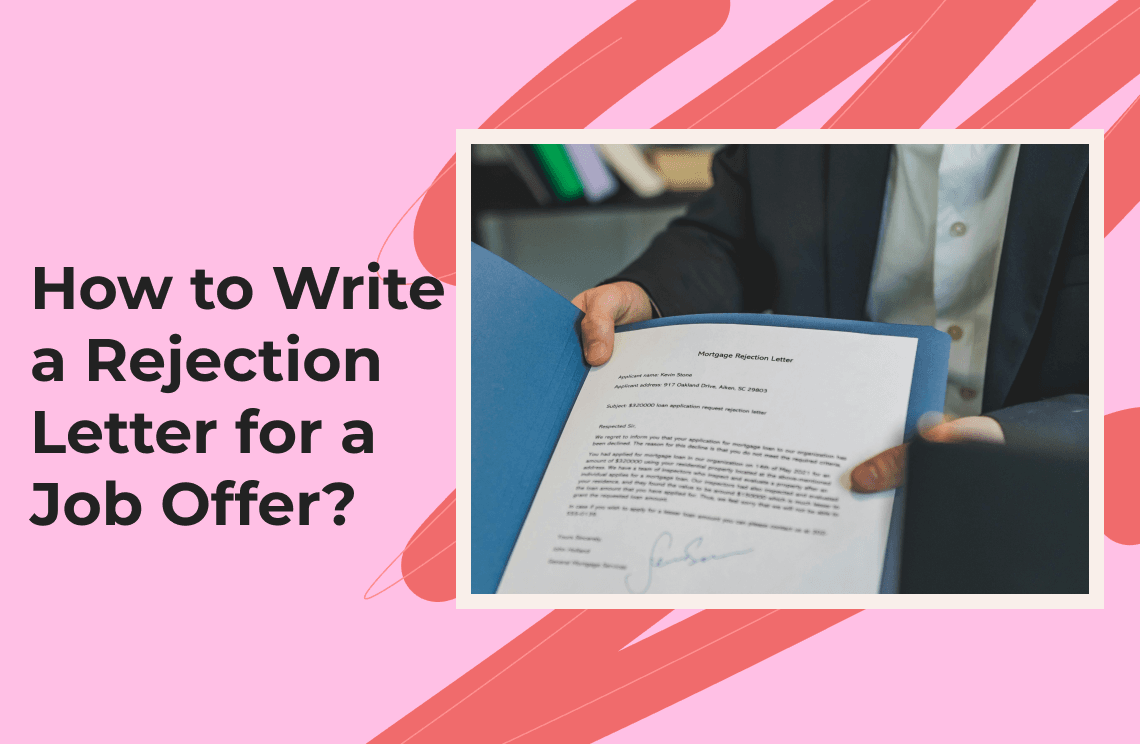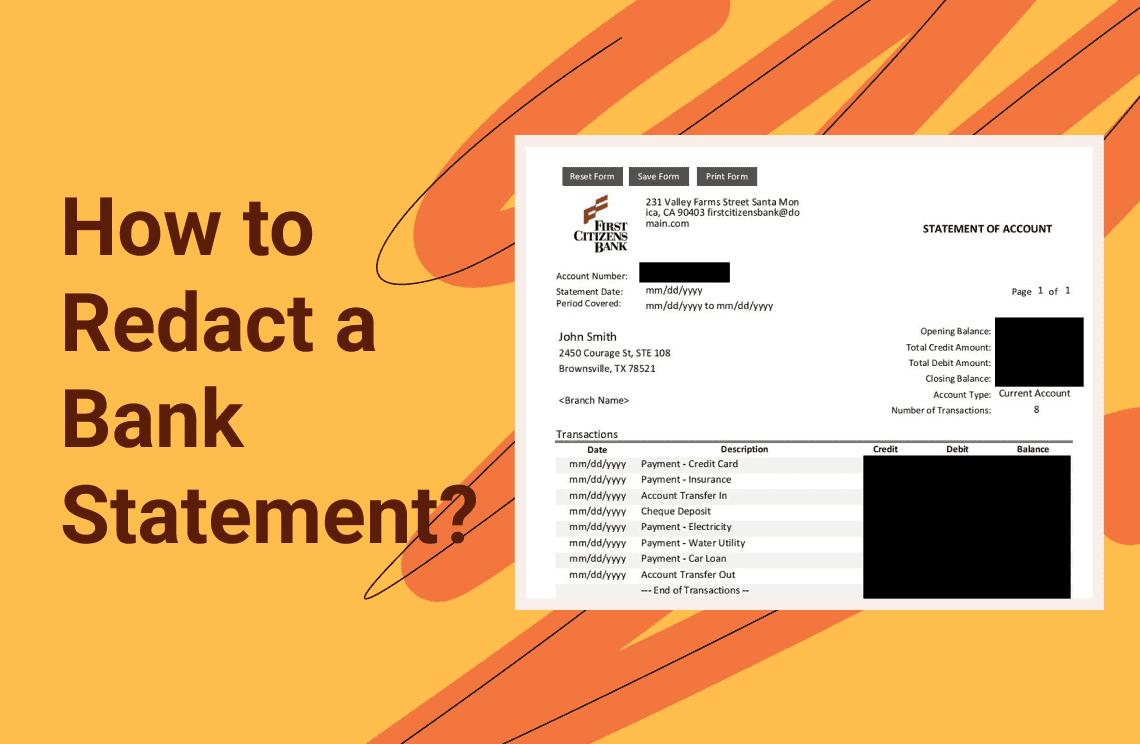Rejecting a job offer is quite a challenging task, you have put in much time and effort into interviewing and to think you still rejected the job after that! Rejecting a job can be for several reasons and may be unavoidable. Whatever your reason is, the job offer rejection letter must be written properly. You must deliver your decision professionally and in a very courteous way to avoid rubbing off on the employer wrongly. A well-written rejection letter keeps your professional reputation intact and opens up any door that may present an opportunity in the future. In this informative write-up, we will guide you on how to write a rejection letter for a job offer.

Good Reasons to Write a Job Offer Rejection Letter
A letter of rejection does the following:
- Professionalism: It shows professionalism and respect towards an employer and his time.
- Documentation: It gives written proof of your decision that might be helpful for both parties.
- Future opportunities: A well-worded rejection might bring possibilities of a job in the future or some network.
- Closure: It brings closure between you and the employer over the specific hire.
Components of a Job Offer Rejection Letter
As you write your letter, you need to include the following components listed below in the format:
Component 1. Header
This includes your details, and date, followed by the details of the contact of your addressee.
Sample:
[Your Full Names]
[Your Home Address]
[City, State, Zip Code]
[Your Active Email]
[Your Phone Number]
[Date]
[Hiring Manager's Name]
[Company Name]
[Company Address]
[City, State, Zip Code]
Component 2. Salutation
In the opening paragraph, address the hiring manager or recruiter.
Example:
Dear [Hiring Manager's Name],
Component 3. Acknowledgment
Begin your acceptance letter by thanking them for the job offer. Let them know how appreciative you are of their time and effort taken in consideration of your application or interviewing you.
Example:
I would like to begin by extending my profound thanks for extending an offer to me in the position of [Job Title] at [Company Name]. Truly, I'm grateful for the opportunity and time that you and your team extended to me during my interviews.
Component 4. Statement of Rejection
Express your decision to decline as straightforwardly as possible and in objective terms.
Sample:
I am writing to let you know that, after a lot of consideration, I have reached the decision to turn down your offer of the position of [Job Title].
Component 5. Reason for Declining
Although not required many times it is a kind gesture to give the reason as to why you are passing on the offer. If one is going to be provided it should be no longer than a sentence and very positive.
Example:
I have decided to accept another opportunity that aligns more with my career path.
Component 6. Closing on a Positive Note
Close your letter by either wishing them the best in their search for an applicant or leaving the door open for possibly considering an applicant in the future.
Example:
I very much enjoyed learning about [Company Name] and valued all of the information conveyed in our different discussions. I wish you continued success in finding your ideal candidate for this position.
Component 7. Closing Signature
Close with a polite closing salutation followed by your signature, if mailing a hard copy, and printed name.
Example:
Sincerely,
[Your Signature (if sending a hard copy)]
[Your Printed Name]

Tips for Writing an Effective Rejection Letter
- Be prompt: Send your rejection letter as soon as you’ve made your decision. This allows the employer to move forward with their hiring process without unnecessary delays.
- Short and professional: Your letter must be compact and no longer than one page, but it has to be professional nonetheless.
- Avoid negatives: Say something about the good experiences with the company and not the negative that probably has made one decide this.
- Spell check: Grammatical or spelling mistakes are forbidden because this is something that reflects a person at the time of sending the letter.
- Mind your tone: Friendly but professional should permeate through your correspondence as a means of keeping up appearances.
- Follow-up verbally if possible/appropriate: When you can afford to and it will be appropriate, you might wish to call or email the hiring manager directly before your written decline to discuss your decision in person.
Sample Letters of Decline
Example 1: Declining the Offer for Accepting another Position
Dear [Hiring Manager's Name],
I am indeed grateful that you extended the offer for the position of [Job Title] at [Company Name]. I really value this opportunity and the time invested by you and your team during my interviews.
After a lot of consideration, I would like to inform you that I declined this offer because I have taken up another offer wherein the job responsibilities more completely fit my career goals.
I appreciated learning about [Company Name] and am grateful for all the insights that came out during our discussions. I wish you great success in finding an ideal candidate for this position.
Sincerely,
[Your Signature-if sending a hard copy]
[Your Printed Name]
Example 2: Declining Due to Compensation Issues
Dear [Hiring Manager's Name],
Please allow me to extend my profound gratitude for appointing me to the post of [Job Title] in [Company Name]. I know that so much time and money were used up in processing my application and making a series of follow-up interviews.
I have given a lot of thought to the offer of compensation, and regretfully, I would have to decline the position since your offer does not meet my current financial needs.
It was a pleasure meeting you and learning more about [Company Name]. I wish you continued success in finding someone suitable for this position.
Best regards,
[Your Signature-if sending hard copy]
[Your Printed Name]

FAQs
Q: How soon should I send my rejection letter?
A: Do it as soon as possible after you have reached your decision within 48 hours from the receipt of the job offer. The sooner you communicate, the more respect is accorded to their time, and they can move ahead with their recruitment process.
Q: Should I include my reasons for declining?
A: Although it is not obligatory to explain the reason for refusing an offer, if you do so in a positive way, that would be great. You can say that you got another opportunity that suited your career or personal interest. Never say anything negative about the company or the position.
Q: How can I maintain professional relationships after declining an offer?
A: To decline an offer without burning your bridges:
- Appreciate the opportunity
- Keep a positive and polite note in your letter.
- Say you would be glad to stay in contact or perhaps on professional networking sites such as LinkedIn.
- Don't burn bridges. You never know what possibilities may come up with this company again in the future.
Q: How can I make my rejection letter professional?
A: To make your job offer rejection letter professional:
- Use formal speech and structure throughout.
- Do not use slang or too casual phrases.
- Proofread for spelling and grammatical errors before sending it out.
- Do make it as short as possible; preferably, but still manage to say everything that must be said.
Conclusion
Writing a job-offer letter rejection is a step towards professionalism as one moves from a no-longer-good-fit opportunity towards achieving career goals. You should, then, follow the best way possible in rejecting such opportunities so that those relationships might come in handy sometime later in your life: just thank, be transparent about the reason for your decision, conciseness, and make sure it is positive. If you don't have any previous experience on how to write a rejection letter for a job offer, the information provided above can guide you. You can get a lot of insights from the examples above.





